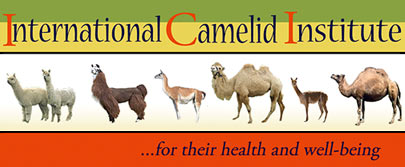P. Walter Bravo, DVM, MS, PhD
Dr. Bravo was born in Peru and obtained a DVM degree at the Universidad Nacional Tecnica del Altiplano, Puno, in 1973. He has his MS degree in Reproductive Physiology from Utah State University and earned a PhD in Comparative Pathology in the Department of Reproduction, School of Veterinary Medicine, University of California, Davis, in 1990. He has worked as Chief of Animal Production and Health in two co-ops, Picotani and Marangani (Peru), dealing with sheep, cows and thousands of llamas and alpacas. He also worked for Universidad Nacional Mayor de San Marcos as an Assistant Professor at the La Raya Research Center, conducting research on animal production. He has written and published many peer reviewed articles on reproductive physiology of the female and male llama and alpaca, and has authored chapters in many books on the same subject. He has both clinical and research experience with llamas and alpacas in Peru and the United States. He has been an Associate Visiting Professor in the Department of Animal and Veterinary Sciences at Brigham Young University in Provo, Utah. Dr. Bravo has worked for Alpacas of America, the largest alpaca farm in the United States and currently works at Camelid Veterinary Services in Findlay, Ohio, a clinic entirely devoted to reproductive issues in llamas and alpacas. He also serves as an Adjunct Professor in the Department of Animal and Veterinary Sciences at the University of Massachusetts. He is invited to give lectures on camelid reproduction worldwide, including Scotland, France, Australia, Bolivia, Peru and the US.
Dr. Cheryl W. DeWitt, DVM
Dr. Cheryl W. DeWitt, DVM is the co-owner of Camelid Veterinary Services and resident veterinarian at Llama Nation farm in Bluffton, Ohio. An award winning graphic designer turned veterinarian, she attended North Carolina State University for graduate studies, and then relocated to Ohio to work in camelid medicine with Dr. Toni Cotton. She and her husband Eric (“Llamafeeder”) have worked with and owned camelids for over 10 years. In 2006, Cheryl bought Camelid Veterinary Services with P. Walter Bravo, DVM, who literally “wrote the book” on camelid reproductive care. Cheryl teaches neonatal clinics all around the country, has worked with vicuna at La Raya research station in Peru, and recently returned from a UMass trip involving veterinary and humanitarian aid to the people of the Altiplano in Peru.
Ahmed Tibary DMV, PhD, DACT
Dr. Ahmed Tibary graduated in 1980 with a Doctorate in Veterinary Medicine from the Institut Agronomique et Vétérinaire (IAV) in Morocco. He earned his MS (1984) and PhD (1989) in Theriogenology from the University of Minnesota and a Doctorat of Science in Animal Production. He was certified as a theriogenologist (reproductive medicine specialist) by the American College of Theriogenologists in 1991.
Dr. Tibary started his career in Morocco and maintains an ongoing affiliation with the university there, teaching and doing research on ruminant, equine and camelid Theriogenology. He has worked as a Clinical Assistant Professor of Theriogenology at the University of Minnesota (1990-1991), Dr. Tibary was the Scientific Director of the Veterinary Research
Center in Abu Dhabi in the United Arab Emirates from 1991 to 1998 where he helped in the development of a referral center for infertility and artificial breeding in Arabian horses and camels. He joined the College of Veterinary Medicine at Washington State University in 1998 where he is now an associate professor and heads the Camelid, Equine and Ruminant theriogenology service.
Dr. Tibary has devoted most of his career to teaching Theriogenology and conducting applied research in large animals. He has been honored with several awards recognizing his excellence in teaching including the Norden Distinguished Teacher Award in 2001 and 2005. He is the authors of over 100 scientific and lay articles in reproduction in bovine, equine, camelids and small ruminants. He has also authored several books on equine and camelid theriogenology. Dr. Tibary has given over 200 presentations to breeders and veterinarians in the field of reproductive medicine and related technologies.
